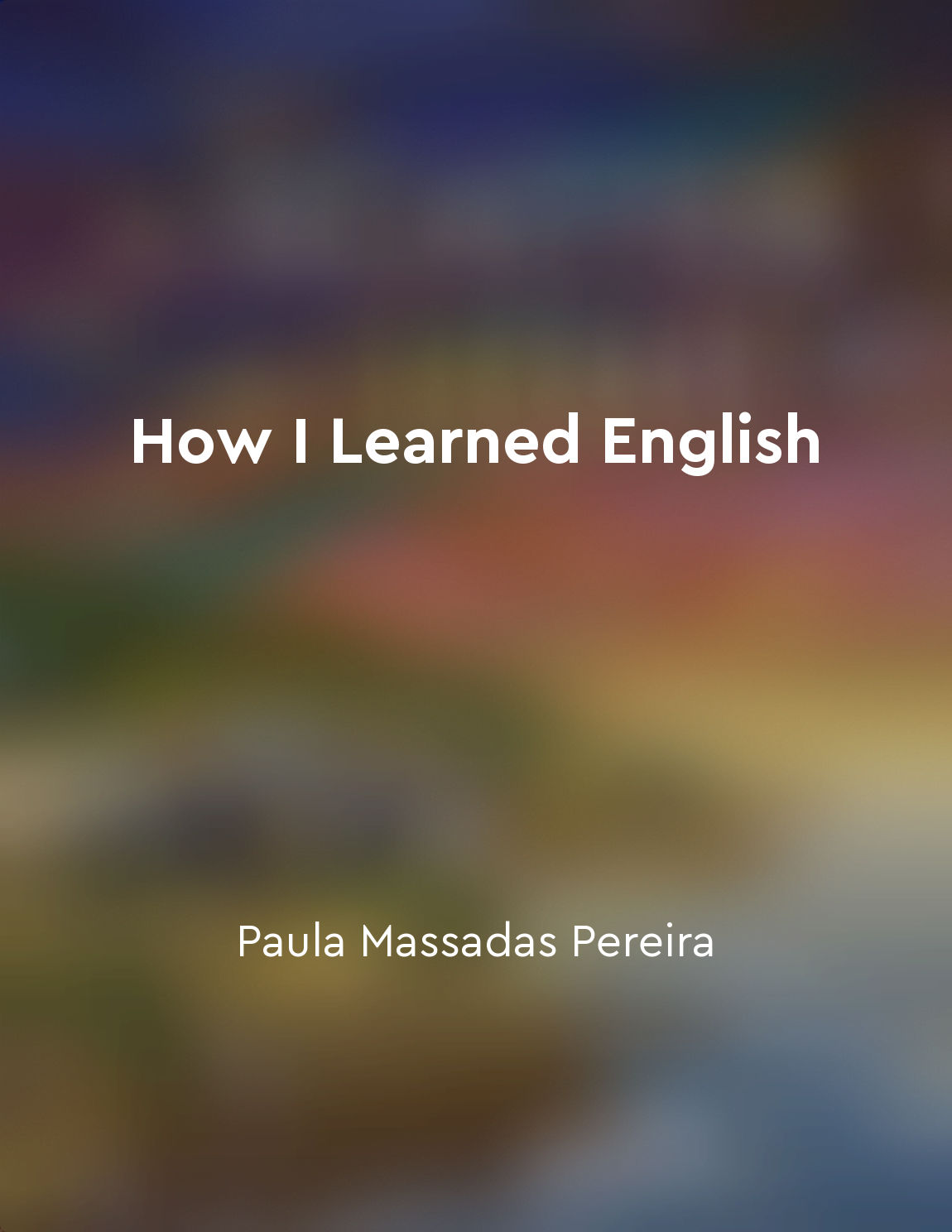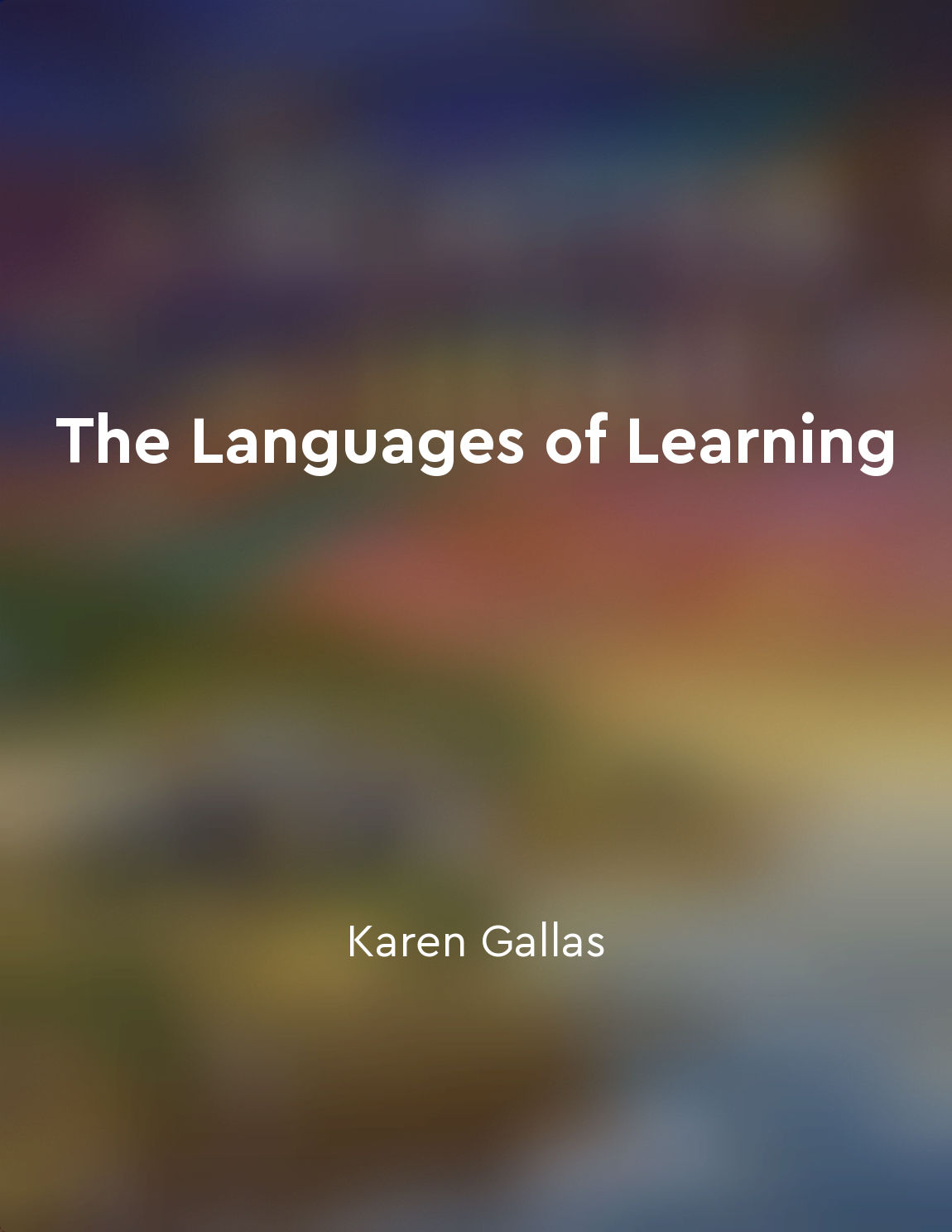Children's languages of learning are influenced by their social interactions from "summary" of The Languages of Learning by Karen Gallas
Children's languages of learning are deeply intertwined with their social interactions. As they engage with others in various learning environments, they absorb language not only through formal teaching but also through informal conversations, play, and collaborative activities. These interactions shape the way they perceive the world, make sense of information, and construct knowledge. In shared experiences with peers, children negotiate meanings, exchange ideas, and co-construct knowledge through dialogue and collaboration. They learn to express their thoughts, ask questions, and engage in critical thinking by interacting with others who offer different perspectives and insights. These social interactions not only enhance their language skills but also foster their cognitive development and socioemotional growth. Moreover, children learn the nuances of language through observing and imitating the communication patterns of adults and peers. By listening to how others express themselves, they internalize vocabulary, grammar, and discourse structures that are essential for effective communication. Through social interactions, children not only learn to use language for different purposes but also develop an awareness of audience, context, and social conventions. Furthermore, social interactions provide children with opportunities to practice and refine their language skills in authentic contexts. By engaging in conversations, debates, storytelling, and collaborative projects, they learn to communicate effectively, negotiate meaning, and co-construct knowledge with others. Through these interactions, children develop a sense of agency and voice as they articulate their ideas, share their experiences, and engage in meaningful dialogue.- Children's languages of learning are enriched and shaped by their social interactions with peers, adults, and the broader community. By engaging in dialogue, collaboration, and shared experiences, they develop language skills, cognitive abilities, and socioemotional competencies that are essential for their academic success and holistic development. Through meaningful interactions, children not only learn to communicate effectively but also cultivate a sense of belonging, empathy, and social responsibility in diverse learning contexts.
Similar Posts
Harness the power of metaphors to convey complex ideas
Metaphors are a powerful tool for conveying complex ideas in a way that is easy for people to understand. By using metaphors, y...
Art reflects reality
Art is a mirror held up to nature; it is a reflection of the world as we see it. Through art, we are able to capture the essenc...
Technology has the power to enhance or suppress our instincts
Technology wields the power to shape our behaviors and instincts, either amplifying or subduing our innate inclinations. Take, ...
Asking better questions can transform your life
The power of questions lies in their ability to shape our thoughts, emotions, and actions. By learning to ask better questions,...

The human mind is capable of great creativity and innovation
It is a remarkable fact that the human mind possesses an extraordinary capacity for creativity and innovation. This capacity al...
Studying roots enhances vocabulary retention
Studying roots can greatly benefit vocabulary retention. By learning the roots of words, you gain insight into the meanings of ...

Setting achievable language learning goals
When embarking on the journey of learning a new language, it is vital to establish clear and attainable goals. Setting achievab...
Purposes are not mental blueprints
Purposes are not mental blueprints. It is a common misconception that when we have a purpose in mind, we are essentially follow...
Reading comprehension strategies
Reading comprehension strategies are essential tools for language learners to understand and interpret texts effectively. These...
Practice using new words in different contexts to reinforce learning
To truly master new vocabulary words, it is essential to practice using them in various contexts. This is because simply memori...


